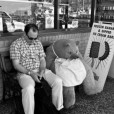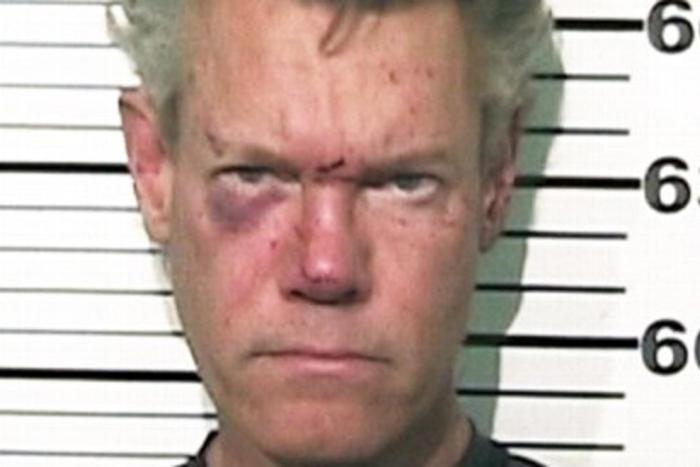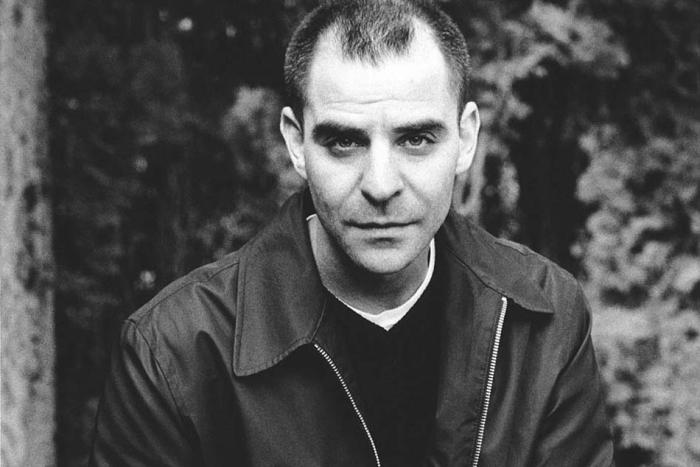If you read it closely enough, you might’ve noticed a conspicuous gap in Anthony Bourdain’s bestselling memoir, Kitchen Confidential.
At the age of 10, Bourdain describes having his first, epiphanic oyster: “I’d learned something. Viscerally, instinctively, spiritually—even in some small, precursive way, sexually—and there was no turning back.” Then suddenly he’s 17, a lowly Provincetown line cook receiving the vision that ultimately inspires him to become a chef. "There was a fenced-off garbage stockade right outside the window by the dishwasher, which concealed the stacked trash and cans of edible waste the restaurant sold to a pig farm up-Cape, from the cars in the parking lot. Soon, all of us—Tommy, Lydia, the new dishwasher and I—were peering through the window, where in full view of his assembled crew, Bobby [the chef] was noisily rear-ending the bride. She was bent obligingly over a fifty-five-gallon drum, her gown hiked up over her hips. Bobby's apron was up, resting over her back as he pumped away furiously, the young woman's eyes rolled up into her head, mouth whispering, "Yess, yess... good... good.." ... And I knew then, dear reader, for the first time: I wanted to be a chef."
And what of those missing years between 1966 and 1973, his early teens roughly? Those, it turns out, were Bourdain’s nerdy, would-be comic book artist years.
“I wanted very badly to write and draw my own graphic novels,” he tells me. “I did one, self-published and printed when I was thirteen, fourteen years old. I think my Mom, when she saw inside, impounded all the copies. I did my own stuff until age fifteen or so, when I guess it became frustratingly clear that I was never going to be as good as the people whose work I really admired. Like R. Crumb, Wallace Wood, Will Eisner, Richard Corben, S. Clay Wilson—a lot of the underground and pre-comics code artists.”
Bourdain is on the phone from a car taking him to Newark Airport, en route to UFC148 in Las Vegas. We're talking about his new graphic novel, Get Jiro (co-written with Joel Rose and illustrated by Langdon Foss) about a sword-wielding ex-Yakuza sushi chef in a Los Angeles of the near future.
I remind him that it’s not his first published comic, that for the Cleveland episode of No Reservations he and Harvey Pekar collaborated on a comic as well.
“Yeah right,” Bourdain says, “Actually, that's true. I hadn't thought of that myself but I did do a comic. You know, Harvey Pekar and I each did a comic. Alternate view comics describing the experience of making the show together.”
He turns it around and surprises me with the recollection of another, unpublished comic he’d given now co-author Joel Rose years ago.
“In 1980 he had a little alternative, underground literary magazine on the Lower East Side called Between C and D, and the first thing I sent him, hoping to be published, was in fact a comic. I think it was about the methadone program. Anyway, he rejected that but was interested in the story and asked me to write something.”
In the meantime, Rose, an author himself, had worked for the DC imprint Paradox Press on titles such as A History of Violence. And after having talked for years about collaborating on a comic book, the long-time friends decided to work together.
The book they came up with, Get Jiro, brims with violent mayhem, salty language, and obsessive attention to culinary detail. It’s set in, as the first panels describe:
The Future. Los Angeles. Or very like it. A world entirely dominated by food culture. Little ELSE is going on. Sports, films, the recording industry have all fragmented and died. The nation is in the business of producing and selling each other. Chefs are the new power. All desire is based on access to them.
Into this midst arrives Jiro, a buff, taciturn sushi chef with singular talent who does not take kindly, to put it mildly, to customers who do not fully appreciate his craft.
“There is a part of me having come to understand how seriously the great, great sushi chefs take their work and how long it took to get to the point they are,” Bourdain says, “I have come to understand the pain and disappointment they feel when someone disrespects their rice by soaking it in wasabi and soy sauce. It’s a physically painful experience to many of them.”
Fighting to control Jiro are Rose, an Alice Waters/Slow Food stand in, and Bob, whose motto is “The Good Stuff—By Any Means Necessary,” rival chef warlords, “each locked in battle with the other over culinary minutiae and arcane philosophical differences—and, of course, turf.”
Battles are fought. Limbs are severed. “Completely protein-free meat substitute” is force-fed.
“It’s just taking the sillier and more ludicrous aspects of rampant foodieism and taking them to a lurid extreme,” Bourdain says. How dining has become a form of entertainment no one would have predicted 20 years ago. How chefs have become empowered as celebrities and public figures. How the politicization of food means that how you define yourself depends on the food choices you make. All of these things, Bourdain says, are easily lampoonable. And he admits he is himself not exempt from the lampooning.
“It’s a world that I know well but it’s also a world that I’m part of, so it’s self-parody as well,” he says. “In a lot of ways, I took two extremes, my own prejudices and passions about food. It’s no accident that some of the dishes being prepared, particularly by the French chef, are, you know, very close to my heart.”
In a book so full of blood and mayhem, it’s thematically elegant (as it were) that Bourdain favourites like boudin noir—blood sausage—and ortolan, a tiny, finch-like (oh, and illegal to consume) bird eaten whole, entrails, head, and all. Here's Bourdain describing eating an ortolan in his book Medium Raw: "With every bite, as the thin bones and layers of fat, meat, skin, and organs compact in on themselves, there are sublime dribbles of varied and wondrous ancient flavors: figs, Armagnac, dark flesh slightly infused with the salty taste of my own blood as my mouth is pricked by the sharp bones. As I swallow, I draw the head and beak, which, until now, had been hanging from my lips, and blithely crush the skull", figure into it.
“You know, I like blood in comics. I liked blood when I was thirteen. I liked blood when I was seven. And I like blood now.”
Though it is a bloody book, Bourdain insists it’s not his anger we’re seeing in Get Jiro. “Jiro may be angry. I’m not. It’s violent... in some ways it’s a superhero book. Somebody's going to get hurt.”
As the car draws nearer to Newark, Las Vegas, and UFC148, Bourdain continues disabusing me of the popular image of him as, as he describes it in Medium Raw, “The angry, cynical, snarky guy who says mean things on Top Chef.”
“I think it’s fair to say I have mellowed. I’m older. I’m a dad. It’s pretty hard to be pissed off all the time when you’re the father of a five-year-old girl. And it’s also hard to be pissed off all the time when you live a pretty fantastic life and have the job that I have. I spend most of my time travelling around the world, wherever the hell I want to go, and work with friends and make television pretty much any way I want to. There’d have to be something deeply wrong with me to be angry all the time.”
And here I was thinking Anthony Bourdain was angry all the time.





